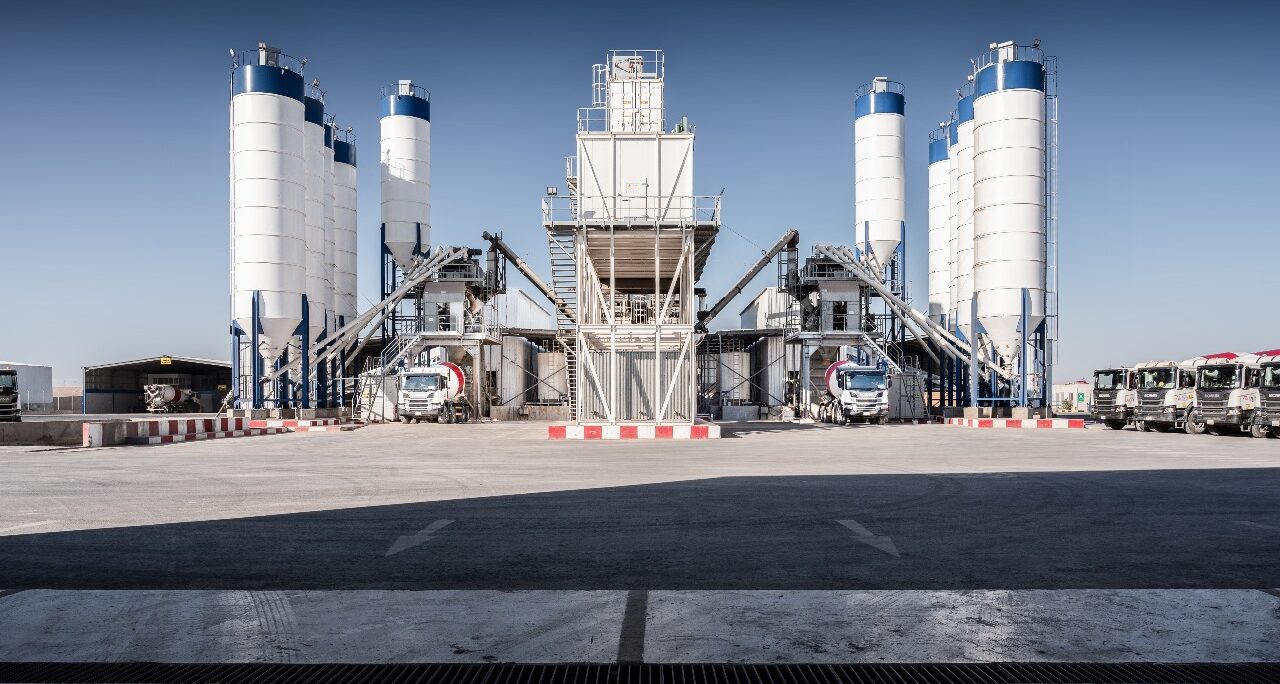We are pleased to announce the publication of a verified Environmental Product Declaration (EPD) for cement based precast products manufactured by Abdullah Abdin Al Bukhari Factory for Industry, located in Tabuk, Saudi Arabia. This declaration, developed in compliance with EN 15804+A2 and ISO 14025.
Established in 1981, Abdullah Abdin Al Bukhari Factory has grown from modest beginnings into a leading producer of construction materials in the Tabuk region. Over the past four decades, the company has continuously expanded and diversified its product portfolio in response to the Kingdom’s rapid urbanization and infrastructure development needs. Today, its cement-based products are widely used across roadways, parking areas, industrial sites, and building frameworks, providing durable and reliable solutions that comply with ASTM standards, the Saudi Building Code, and SASO regulations.
The published EPD covers a family of precast cement products, including New Jersey Barriers, Curbstones, Wheel Stoppers, Lintels, Wet Press Units and Cement Tiles. Although these products differ in form and function, they share a consistent mix design and environmental profile, justifying their inclusion under a single declaration. The typical composition by mass is 12% cement, 84% aggregates, and 4% water all sourced locally within Saudi Arabia.
The EPD provides detailed insight into the environmental impacts associated with producing one metric ton of these cement products (declared unit: 1000 kg). Key results from the cradle-to-gate assessment (A1–A3) include:
Global Warming Potential (GWP-fossil): 138 kg CO₂e per metric ton
Total Energy Use: 255 kWh
Net Freshwater Consumption: 0.89 m³
Recycled Content: 0% (no secondary materials used)
These figures provide designers, contractors, and sustainability consultants with transparent and verified data to support sustainable procurement, carbon footprint assessments, and compliance with green building certification requirements.
Life Cycle Scope
The EPD covers the following stages of the product life cycle:
Raw Material Extraction (A1) – sourcing cement, aggregates, and water from local suppliers and quarries
Transport (A2) – delivery of raw materials by truck, powered by diesel fuel
Manufacturing (A3) – mixing, molding, curing, and quality control at the Tabuk facility
End-of-Life (C1–C4) – demolition, transport, and final disposal
Notably, due to the current absence of established recycling infrastructure for construction and demolition waste in the Tabuk region, all cement products are conservatively assumed to be landfilled at end of life. This represents a significant challenge and an opportunity for future improvement in Saudi Arabia’s construction sustainability landscape.
The EPD was developed using the One Click LCA EPD Generator and independently verified by Sergio Ballen Zamora, an authorized verifier acting for EPD Hub. This external verification ensures compliance with international standards and provides credibility to the reported results.
The publication of this EPD is an important step in advancing transparency and environmental accountability within the regional construction sector. EPDs are increasingly required for green building certifications such as LEED, BREEAM, and Mostadam, and they help project teams make informed, sustainable material choices. By publishing this declaration, Abdullah Abdin Al Bukhari Factory demonstrates leadership in aligning with global sustainability practices while contributing to Saudi Arabia’s Vision 2030 goals.
This verified EPD reflects the manufacturer’s ongoing commitment to sustainability, product transparency, and responsible construction practices. As demand grows for environmentally sound building materials, such declarations play a crucial role in bridging the gap between material producers and sustainability-driven projects.
For more details and access to the full EPD, please visit https://manage.epdhub.com/declarations/concrete-concrete-products/abdullah-abdin-al-bukhari-factory-for-industry/3941/cement-products/

